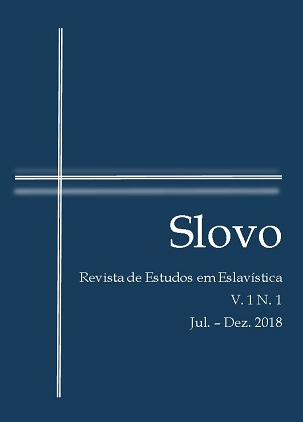Demystifying monolingualism in Brazil:Ukrainian language in Prudentópolis, Paraná
Abstract
The end of the twentieth century was marked by large migratory movements, from which mass immigration to Brazil began. The two Great World Wars that followed contributed to the increase of the flow of immigrants, but at the same time they directly impacted the languages of the established communities and influenced the solidification of Portuguese as a unique and official language in the country. In this work, we seek to demystify the belief of monolingualism in Brazil, presenting contexts in which several languages were and continue to be used in the national territory. We also address the specific context of the immigration languages, including the Ukrainian language and present the linguistic reality found in a municipal school located in a community in the countryside of the municipality of Prudentópolis, Paraná, whose members are mostly descendants of Ukrainians.


